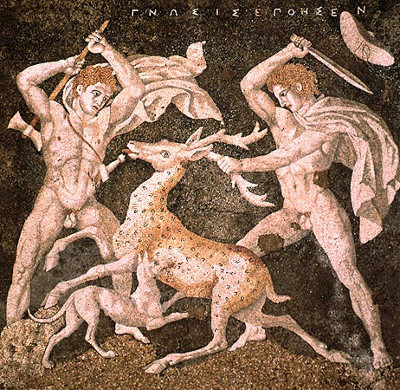
Rousseau asks: Suppose that you and I hunt a stag. This requires long hours lying in wait along the trail, and it entails the risk that the stag will not appear. If, after some time has passed, a hare appears, either of us could seize it, abandoning the hope of capturing the stag but getting an immediate meal for himself. To hunt the stag successfully we have to agree to trust one another, knowing that each of us has an immediate reason to betray the other.
This gets even harder when many people are involved. David Hume writes, “Two neighbors may agree to drain a meadow, which they possess in common; because ’tis easy for them to know each others mind, and each may perceive that the immediate consequence of failing in his part is the abandoning of the whole project. But ’tis difficult, and indeed impossible, that a thousand persons shou’d agree in any such action.”
How did our society ever get off the ground when cooperation requires a faith in one another that simple self-reliance does not? It seems that our very rationality makes such a leap harder: Animals such as social insects work harmoniously together, but “the agreement of these creatures is natural,” writes Thomas Hobbes. “That of men is by covenant only, which is artificial.”
